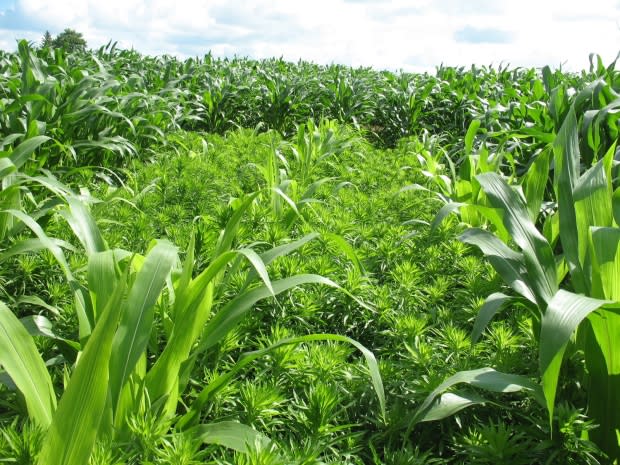Herbicide-resistant weed now in seven Ontario counties
Farmers in seven Ontario counties will have a tougher time fighting a weed called waterhemp, because some have developed a resistance to glyphosate — a type of chemical used for weed control.
Herbicide-resistant waterhemp is found in counties including Essex, Lambton and Chatham-Kent.
This limits herbicide options for farmers, which is going to be a problem for Ontario, according to Peter Sikkema, a field weed management professor at the University of Guelph's Ridgetown campus.
He said for the past 20 years, growers have relied on using Roundup to control weeds in corn and soybean fields, but now they will "have to use alternative herbicides to get effective control."
Dale Cowan, senior agronomist and sales manager with Agris Cooperative, said the problem is partly due to over-using the herbicide in the first place.
"Glyphosate was cheap, it was only $7 an acre," said Cowan. "We put the selection pressure on natural population and now it no longer works well, so we have to add other chemistries to kill the weeds."

According to Cowan, to control the weed, it'll take three or more chemicals into the herbicide mix, along with using a two-pass (multiple sprays of the field) system.
Identifying early is key
It has also been a long time since farmers had to hand-maintain their fields, said Sikkema.
"Farm sizes have increased dramatically and one of the reasons why that was possible because of effective weed management," he said.
According to Cowan, early identification of the weed is important. Farmers should identify them early and spray them when they are still small.
"It looks like every other pig weed out there, that's the problem," said Cowan.
The resistant waterhemp has been found in Huron, Wentworth, Middlesex and Haldimand counties, in addition to Essex, Lambton and Chatham-Kent.

